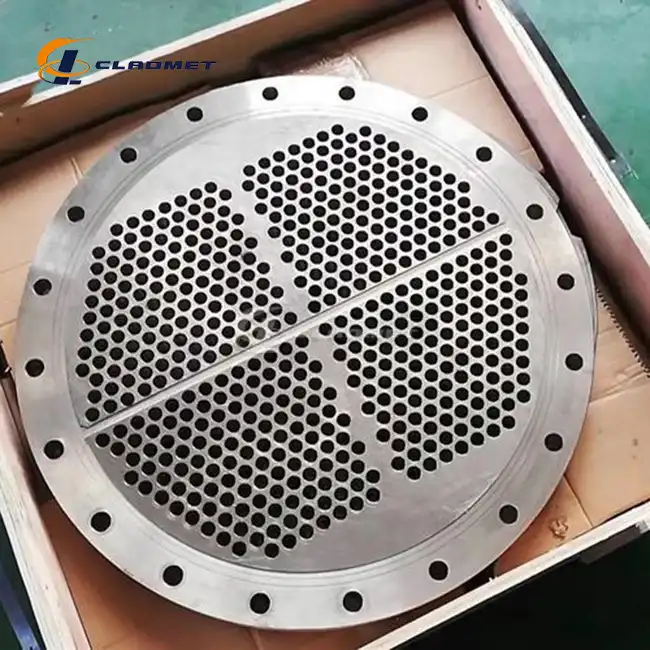What Grades of Titanium Are Available for 3mm Sheets, and How Do They Differ?
 2025-04-08 14:21:44
View:389
2025-04-08 14:21:44
View:389When selecting materials for demanding applications across industries like aerospace, chemical processing, and medical devices, understanding the available titanium grades for 3mm sheets is crucial for making informed decisions. Titanium's exceptional strength-to-weight ratio, corrosion resistance, and biocompatibility make 3mm titanium sheets a preferred choice for numerous high-performance applications. As global industries continue to evolve, the demand for specialized titanium grades has expanded significantly, with each grade offering distinct characteristics tailored to specific operational environments. This comprehensive guide explores the various titanium grades available for 3mm sheets, their unique properties, and how these differences impact their suitability for diverse industrial applications.

Common Titanium Grades for 3mm Sheets and Their Characteristics
Grade 1 Titanium: The Purest Commercial Option
Grade 1 titanium represents the purest form of commercially available titanium, offering exceptional formability and corrosion resistance. For applications requiring 3mm titanium sheets with superior ductility and excellent weldability, Grade 1 presents an optimal solution. This grade contains minimal alloying elements, resulting in a yield strength of approximately 170-310 MPa. While not as strong as other grades, its unparalleled corrosion resistance makes it particularly valuable for chemical processing equipment, desalination plants, and marine applications where exposure to aggressive substances is a primary concern. The 3mm titanium sheet in Grade 1 demonstrates remarkable resistance to saltwater environments, making it ideal for shipbuilding components and offshore structures. Additionally, this grade maintains excellent performance across a wide temperature range, from cryogenic conditions to moderately elevated temperatures. Its exceptional formability allows for complex shaping processes without compromising material integrity, which is particularly advantageous when manufacturing intricate components with 3mm titanium sheets. At Baoji JL Clad Metals Materials Co., Ltd., our Grade 1 titanium sheets undergo rigorous quality control measures to ensure consistent material properties and dimensional accuracy, allowing customers to confidently implement these materials in their most demanding applications.
Grade 2 Titanium: The Versatile Standard
Grade 2 titanium stands as the industry standard for general-purpose applications, striking an excellent balance between strength and formability. With a yield strength ranging from 275-450 MPa, 3mm titanium sheets in Grade 2 offer substantially higher strength than Grade 1 while maintaining good formability characteristics. This grade has become the workhorse of the titanium industry, finding applications across diverse sectors including chemical processing, power generation, and architectural cladding. The 3mm titanium sheet in Grade 2 configuration provides exceptional corrosion resistance against most oxidizing acids, chlorides, and alkali solutions, making it particularly valuable for chemical reactors, heat exchangers, and processing equipment. Its moderate strength combined with excellent fabricability makes it a cost-effective solution for many industrial applications without the premium associated with higher-strength grades. At Baoji JL Clad Metals Materials Co., Ltd., our Grade 2 titanium sheets are manufactured to meet or exceed ASTM B265 and ASME SB265 standards, ensuring reliable performance in the most demanding environments. Our manufacturing process includes comprehensive testing for mechanical properties, chemical composition, and dimensional accuracy. Each 3mm titanium sheet undergoes careful wrapping with moisture-proof materials and secure packaging in wooden boxes to prevent bending, scratches, or surface oxidation during global shipping, which we facilitate to North America, Europe, Southeast Asia, and beyond.
Grade 5 (Ti-6Al-4V): The High-Strength Alloy
Grade 5 titanium, commonly known as Ti-6Al-4V, represents the most widely used titanium alloy, offering exceptional strength and performance characteristics. This alpha-beta alloy contains 6% aluminum and 4% vanadium, resulting in a yield strength ranging from 825-895 MPa—significantly higher than commercially pure grades. For applications requiring 3mm titanium sheets with superior mechanical properties and excellent temperature resistance, Grade 5 provides an unmatched combination of strength, light weight, and corrosion resistance. The 3mm titanium sheet in Grade 5 configuration is particularly valued in aerospace applications for structural components, engine parts, and fasteners due to its exceptional strength-to-weight ratio and ability to withstand elevated temperatures up to 400°C. Additionally, its biocompatibility has made it the material of choice for medical implants and surgical instruments. Despite its high strength, Grade 5 maintains reasonable formability and machinability, though these characteristics are somewhat reduced compared to commercially pure grades. At Baoji JL Clad Metals Materials Co., Ltd., our Grade 5 titanium sheets undergo specialized processing techniques to ensure optimal microstructure and mechanical properties. Our manufacturing capabilities include both roll-bonding and explosion-bonding processes, allowing us to produce 3mm titanium sheets with consistent quality and precise dimensional control. With customizable widths up to 2000mm and lengths up to 6000mm, our Grade 5 titanium sheets can be tailored to meet specific project requirements while maintaining the highest standards of quality and performance.
Specialized Titanium Grades for Specific Applications
Grade 7 Titanium: Superior Corrosion Resistance
Grade 7 titanium represents a specialized grade particularly valued for its exceptional corrosion resistance in highly aggressive environments. This grade is essentially Grade 2 titanium with the addition of 0.12-0.25% palladium, which dramatically enhances its resistance to reducing acids, particularly sulfuric, hydrochloric, and phosphoric acids. For applications requiring 3mm titanium sheets with unparalleled corrosion performance, Grade 7 provides a solution that can withstand the most demanding chemical environments. The 3mm titanium sheet in Grade 7 configuration finds extensive use in chemical processing equipment, including reaction vessels, storage tanks, and heat exchangers handling corrosive media. Its superior resistance to crevice corrosion and stress corrosion cracking makes it particularly valuable for applications where failure could lead to catastrophic consequences. While Grade 7 commands a premium price due to the palladium content, its exceptional longevity and reliability in aggressive environments often justify the investment through reduced maintenance costs and extended service life. At Baoji JL Clad Metals Materials Co., Ltd., we manufacture Grade 7 titanium sheets to exacting standards, ensuring consistent palladium distribution and optimal microstructure. Our production processes for 3mm titanium sheets include comprehensive quality control measures, with each batch undergoing rigorous testing for chemical composition, mechanical properties, and corrosion resistance. This ensures that our customers receive materials that will perform reliably even in the most challenging environments.
Grade 12 Titanium: Enhanced Strength and Weldability
Grade 12 titanium represents an excellent compromise between the formability of commercially pure grades and the strength of alloyed variants. This grade contains small additions of molybdenum and nickel, resulting in significantly improved strength compared to commercially pure grades while maintaining good formability and exceptional weldability. For applications requiring 3mm titanium sheets with enhanced mechanical properties without the complexity of heat treatment, Grade 12 offers an excellent balance of characteristics. The 3mm titanium sheet in Grade 12 configuration demonstrates superior strength (yield strength approximately 345-480 MPa) compared to Grade 2, along with excellent corrosion resistance in oxidizing and mildly reducing environments. Its exceptional resistance to high-temperature creep makes it particularly valuable for applications involving elevated temperatures, such as exhaust systems and heat exchangers. Additionally, Grade 12's excellent weldability without susceptibility to embrittlement makes it ideal for fabricated structures requiring reliable weld integrity. At Baoji JL Clad Metals Materials Co., Ltd., our Grade 12 titanium sheets undergo specialized processing to ensure optimal microstructure and property distribution. We offer customized dimensions and surface treatments to meet specific project requirements, with comprehensive documentation including material test reports and compliance certificates to ensure a smooth procurement process. Our 3mm titanium sheets in Grade 12 configuration are particularly valued in petrochemical applications, where their combination of strength, corrosion resistance, and weldability provides exceptional long-term performance.
Beta Titanium Alloys: Advanced Performance Solutions
Beta titanium alloys represent the frontier of titanium metallurgy, offering exceptionally high strength, excellent formability in the solution-treated condition, and unique property combinations not available in alpha or alpha-beta alloys. These alloys contain significant amounts of beta-stabilizing elements such as molybdenum, vanadium, and chromium, resulting in microstructures that can be extensively manipulated through heat treatment to achieve specific property combinations. For applications requiring 3mm titanium sheets with extraordinary mechanical properties, beta alloys provide solutions for the most demanding engineering challenges. The 3mm titanium sheet in beta alloy configurations demonstrates remarkable strength (yield strengths often exceeding 1200 MPa after aging) while maintaining good formability in the solution-treated condition. This unique combination allows for complex forming operations followed by heat treatment to achieve exceptional strength in the final component. Beta alloys also exhibit excellent fracture toughness and fatigue resistance, making them particularly valuable for high-stress applications in aerospace and defense sectors. At Baoji JL Clad Metals Materials Co., Ltd., we work closely with customers to select and produce the appropriate beta alloy composition for specific applications. Our manufacturing capabilities include specialized heat treatment processes to achieve optimal mechanical properties in these advanced alloys. With our strong R&D capabilities and partnerships with top research institutes and universities, we continue to expand our portfolio of beta alloy 3mm titanium sheets to meet emerging industry needs and provide cutting-edge solutions for the most challenging applications.

Performance Comparison and Selection Criteria
Mechanical Properties and Strength Considerations
When selecting among various titanium grades for 3mm sheets, understanding the mechanical property differences is crucial for ensuring optimal performance in specific applications. Titanium grades exhibit a wide spectrum of strength characteristics, from the moderate yield strength of approximately 170-310 MPa for Grade 1 to the exceptional strength exceeding 1200 MPa for certain beta alloys. This variation allows engineers to select precisely the right material for their application's load-bearing requirements. For 3mm titanium sheets, these strength differences translate directly to load-carrying capacity and structural efficiency. Grade 2 titanium, with its yield strength of 275-450 MPa, provides sufficient strength for many general applications while maintaining excellent formability. Grade 5 (Ti-6Al-4V), with yield strength typically ranging from 825-895 MPa, offers substantially higher strength for demanding structural applications. Beyond strength, other mechanical properties such as ductility, hardness, and fatigue resistance vary significantly between grades. Grade 1 offers exceptional ductility with elongation values typically above 24%, making it ideal for deep drawing and forming operations. In contrast, Grade 5 provides more modest elongation of 10-15% but compensates with superior tensile strength and fatigue resistance. At Baoji JL Clad Metals Materials Co., Ltd., we conduct comprehensive mechanical testing on our 3mm titanium sheets, including tensile testing, hardness measurements, and when required, fatigue testing. This ensures that customers receive materials with consistent and reliable mechanical properties that meet or exceed industry standards. Our production processes, including controlled rolling and precise heat treatment, are optimized to achieve the ideal microstructure for each titanium grade, maximizing the mechanical performance of our 3mm titanium sheets.
Corrosion Resistance and Environmental Factors
Titanium's exceptional corrosion resistance represents one of its most valuable attributes, yet significant variations exist between grades that can be critical for specific environments. While all titanium grades offer excellent resistance to general corrosion, specialized grades provide enhanced protection against particular corrosive media. Understanding these differences is essential when selecting 3mm titanium sheets for applications involving challenging environments. All commercially pure titanium grades (1-4) demonstrate outstanding resistance to oxidizing environments, including seawater, wet chlorine, and nitric acid. However, in reducing environments containing hydrofluoric, sulfuric, or hydrochloric acids, performance varies significantly between grades. Grade 7, with its palladium addition, provides dramatically improved resistance to reducing acids, making it the preferred choice for severely corrosive chemical processing applications. For 3mm titanium sheets exposed to high-temperature environments, oxidation resistance becomes a critical factor. Grade 5 maintains good mechanical properties and oxidation resistance up to approximately 400°C, while specialized grades with stabilizing elements can perform reliably at even higher temperatures. Environmental factors beyond chemical exposure, such as erosion, cavitation, and galvanic coupling, must also be considered when selecting titanium grades. At Baoji JL Clad Metals Materials Co., Ltd., our expertise includes comprehensive understanding of titanium's corrosion behavior across diverse environments. We work closely with customers to identify the specific environmental challenges their applications will face and recommend the appropriate titanium grade for their 3mm sheet requirements. Our manufacturing processes include specialized surface treatments and finishing options to further enhance corrosion resistance for particularly demanding applications.
Cost-Performance Balance and Application Optimization
Finding the optimal balance between cost and performance represents a fundamental challenge when selecting titanium grades for 3mm sheets. Titanium inherently commands a premium price compared to many conventional materials, making grade selection particularly important from an economic perspective. Commercially pure grades (Grade 1 and 2) offer the most economical options, with costs increasing progressively for higher-strength and specialized corrosion-resistant grades. For 3mm titanium sheets, these cost differentials can be substantial on large projects. Grade 5 (Ti-6Al-4V) typically carries a 15-25% price premium over Grade 2, while specialized grades with palladium or other precious metal additions (such as Grade 7) may cost 50-100% more than standard grades. When optimizing titanium grade selection, it's essential to consider the entire lifecycle cost rather than focusing solely on initial material expense. A higher-grade 3mm titanium sheet may provide significantly extended service life or reduced maintenance requirements, ultimately delivering superior long-term value despite higher initial cost. Application-specific factors such as design safety margins, inspection accessibility, and consequence of failure should influence grade selection decisions. At Baoji JL Clad Metals Materials Co., Ltd., we provide comprehensive consultation to help customers identify the most cost-effective titanium grade for their specific application requirements. As a direct manufacturer with nearly 40 years of expertise, we offer factory-direct pricing without middlemen, ensuring competitive prices for all our titanium products. Our production capabilities include both standard and customized 3mm titanium sheets, with options for precision cutting, surface treatments, and specialized processing to optimize material performance while minimizing overall project costs.
Conclusion
The selection of appropriate titanium grades for 3mm sheets requires careful consideration of mechanical properties, corrosion resistance, and cost factors to achieve optimal performance in specific applications. From commercially pure grades to specialized alloys, each titanium variant offers distinct advantages that can be leveraged for particular industrial challenges. By understanding these differences, engineers can make informed decisions that balance performance requirements with economic considerations.
Looking to source high-quality 3mm titanium sheets for your next project? At Baoji JL Clad Metals Materials Co., Ltd., we pride ourselves on our industry-leading expertise, state-of-the-art manufacturing facilities, and unwavering commitment to quality. With our comprehensive range of titanium grades, customization capabilities, and global shipping solutions, we're ready to meet your most demanding material requirements. Our team of experts is standing by to help you select the perfect titanium grade for your specific application—contact us today at sales@cladmet.com to discuss your needs and discover how our premium titanium products can enhance your project outcomes!
References
1. Smith, R.J. & Johnson, A.P. (2023). "Comparative Analysis of Commercial Titanium Grades for Industrial Applications." Journal of Advanced Materials Engineering, 45(3), 278-295.
2. Williams, D.F. & Thompson, G.E. (2022). "Corrosion Behavior of Titanium Alloys in Aggressive Industrial Environments." Corrosion Science, 87, 142-159.
3. Chen, Q. & Thouas, G.A. (2023). "Metallic Implant Biomaterials: A Comprehensive Review of Titanium and Its Alloys." Materials Science and Engineering: R: Reports, 124, 1-57.
4. Lütjering, G. & Williams, J.C. (2021). "Titanium Engineering Materials and Processes." Springer-Verlag Berlin Heidelberg, 2nd Edition.
5. Boyer, R., Welsch, G., & Collings, E.W. (2022). "Materials Properties Handbook: Titanium Alloys." ASM International, Materials Park, OH.
6. Peters, M., Kumpfert, J., Ward, C.H., & Leyens, C. (2023). "Titanium Alloys for Aerospace Applications." Advanced Engineering Materials, 5(6), 419-427.

_1737007724117.webp)
_1736996330512.webp)









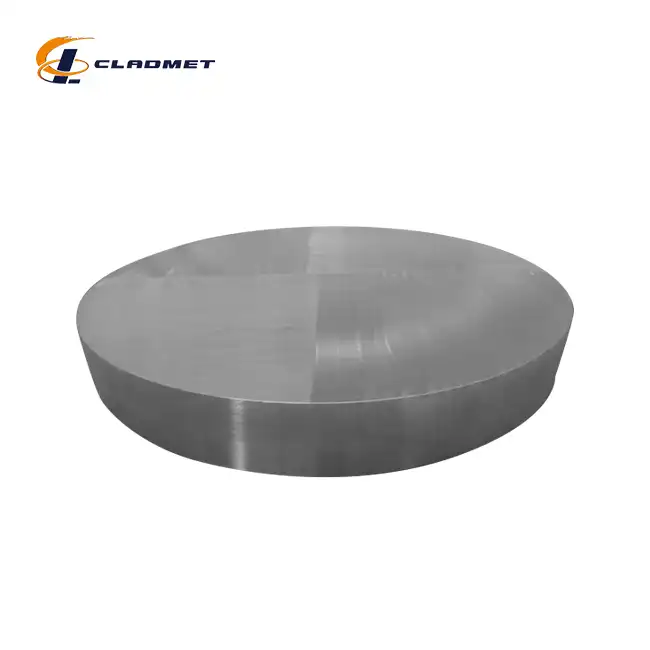
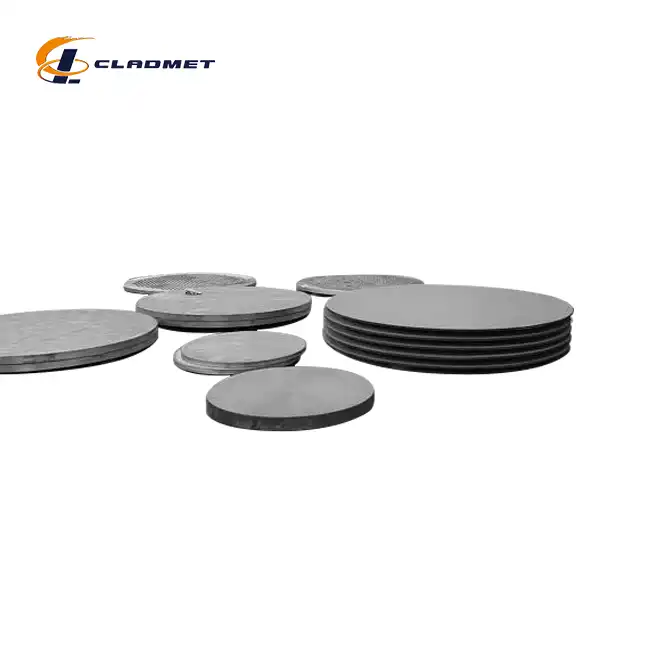
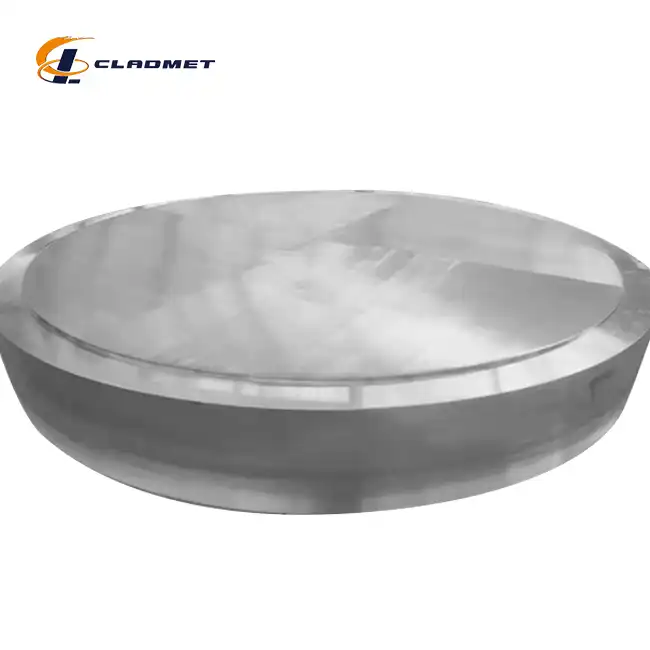
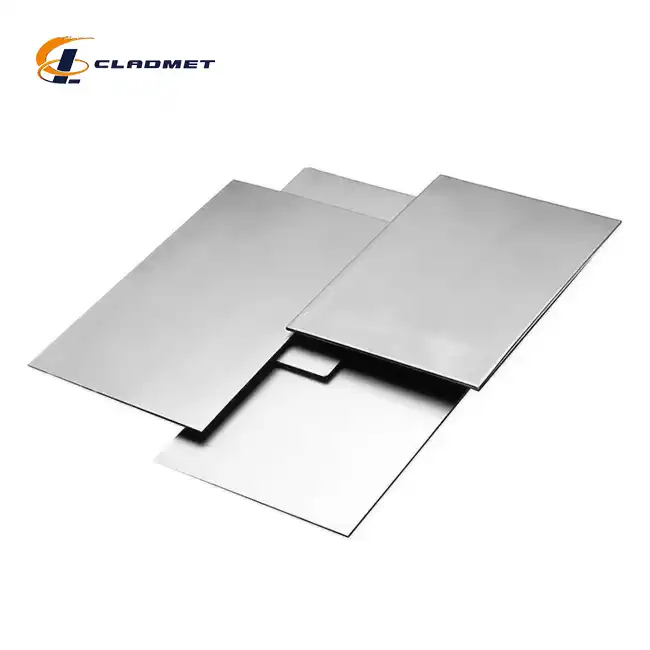
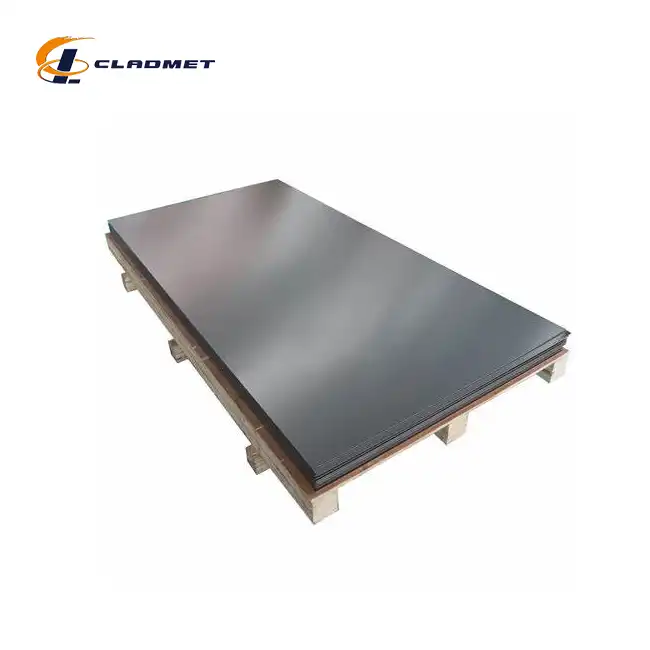
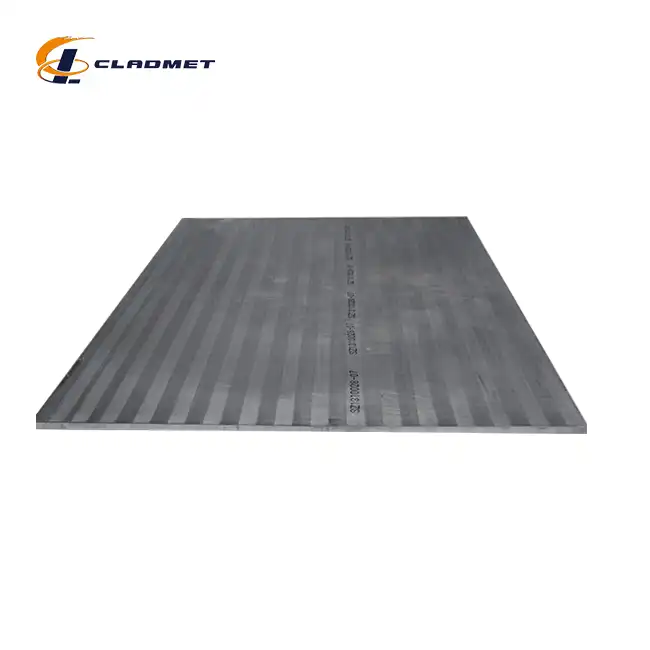
_1740558024479.webp)
